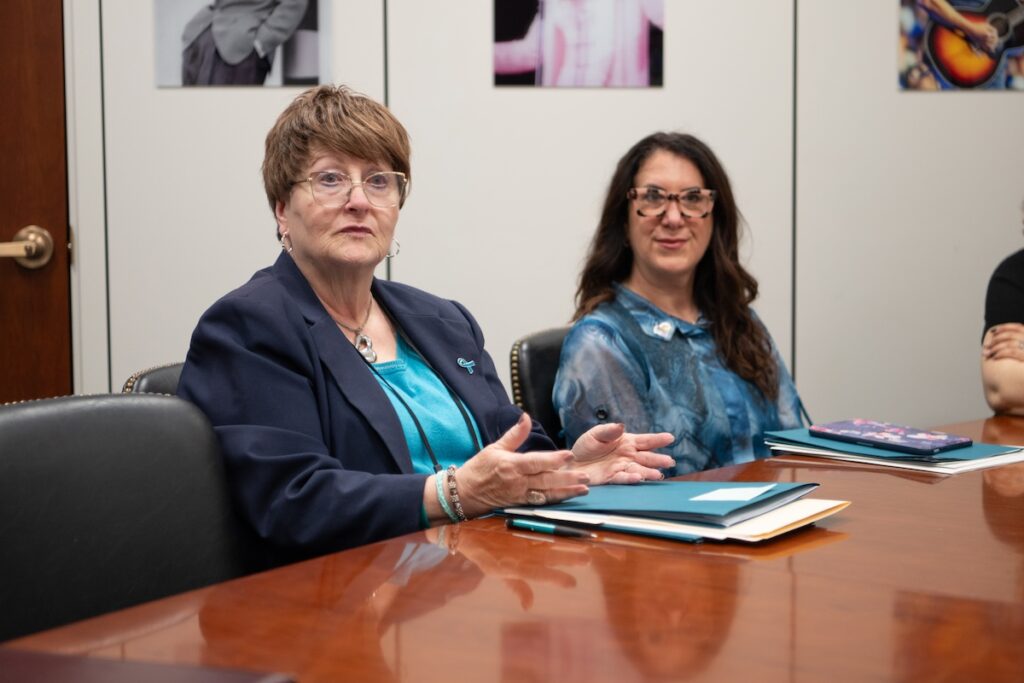
OCRA’s Advocate’s Corner: June 2025
Written by Chad Ramsey, Vice President, Policy, Ovarian Cancer Research Alliance FY26 Budget Update: Critical Cancer Programs at Risk Congress is deep into its work on the fiscal year 2026 … Continued
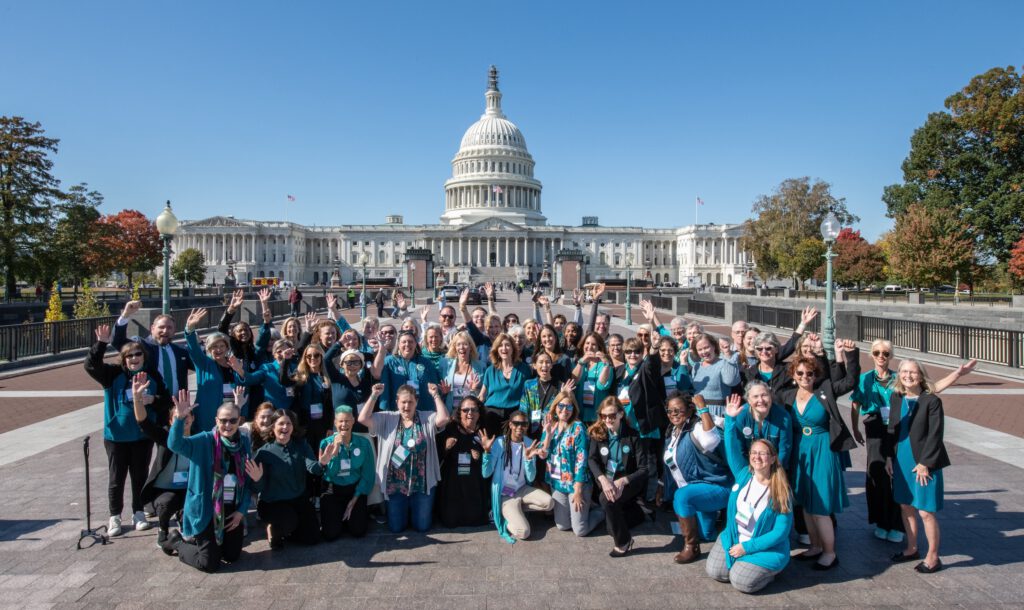
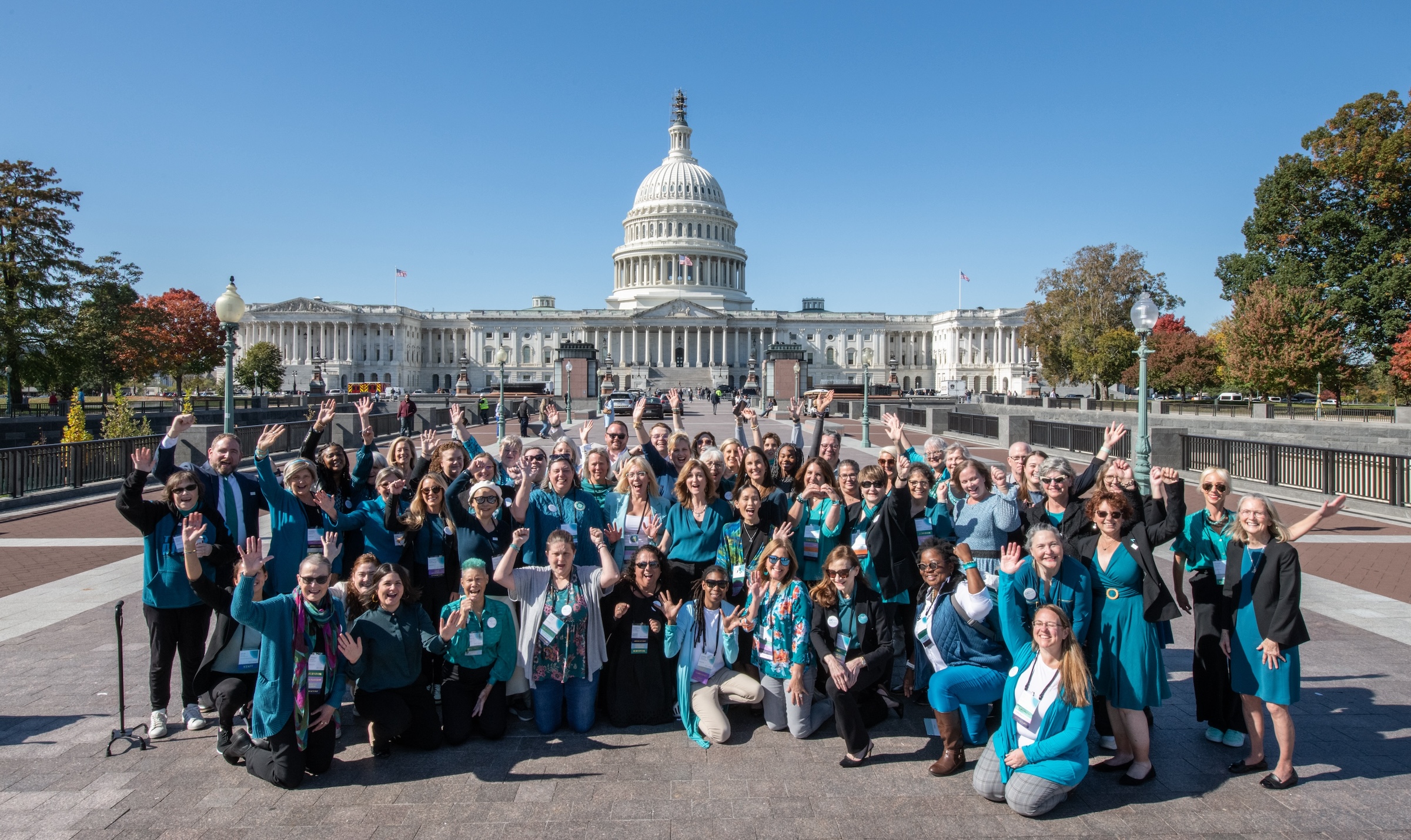
OCRA is the voice for the ovarian cancer community.
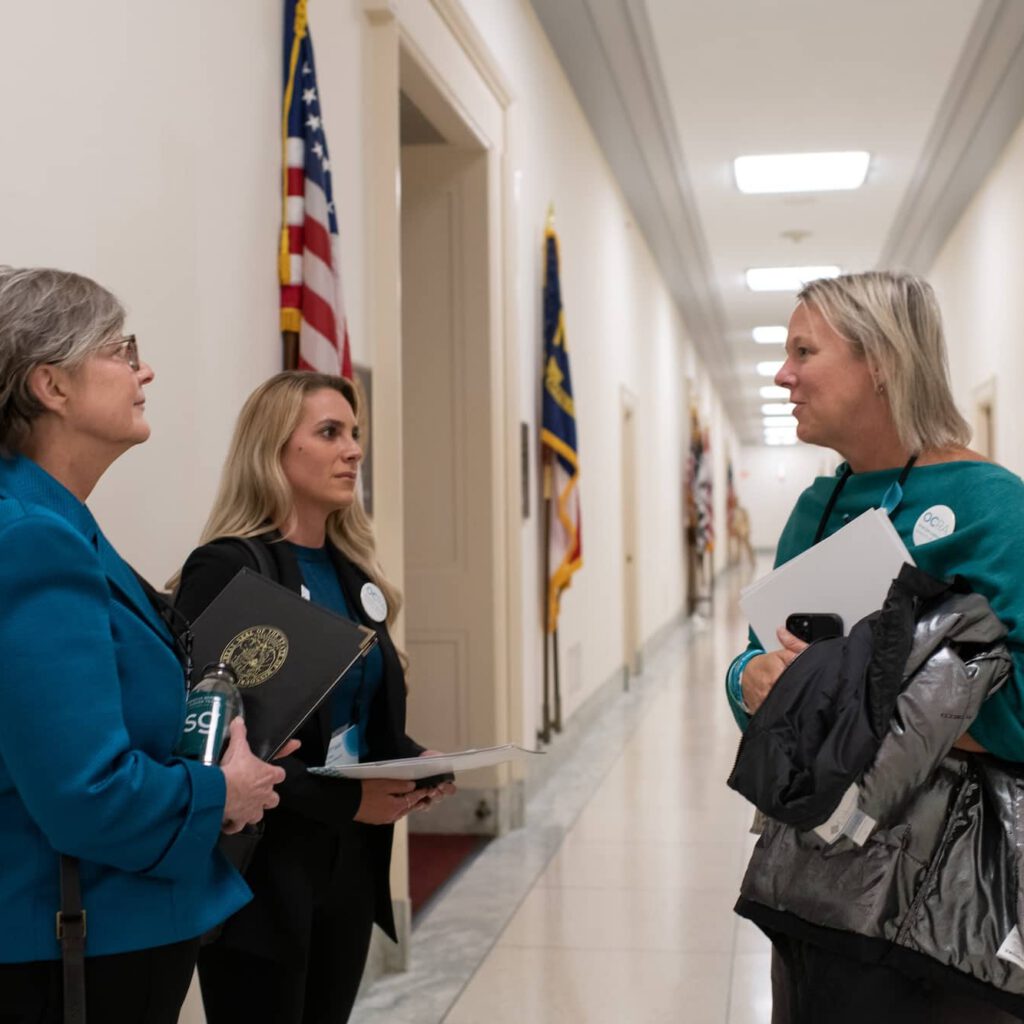
OCRA advocates on Capitol Hill to improve research and education, drug and diagnostic safety, and access to quality care for all members of the ovarian and gynecologic cancer community. To date, OCRA has helped secure more than $3.8 billion in federal funding.
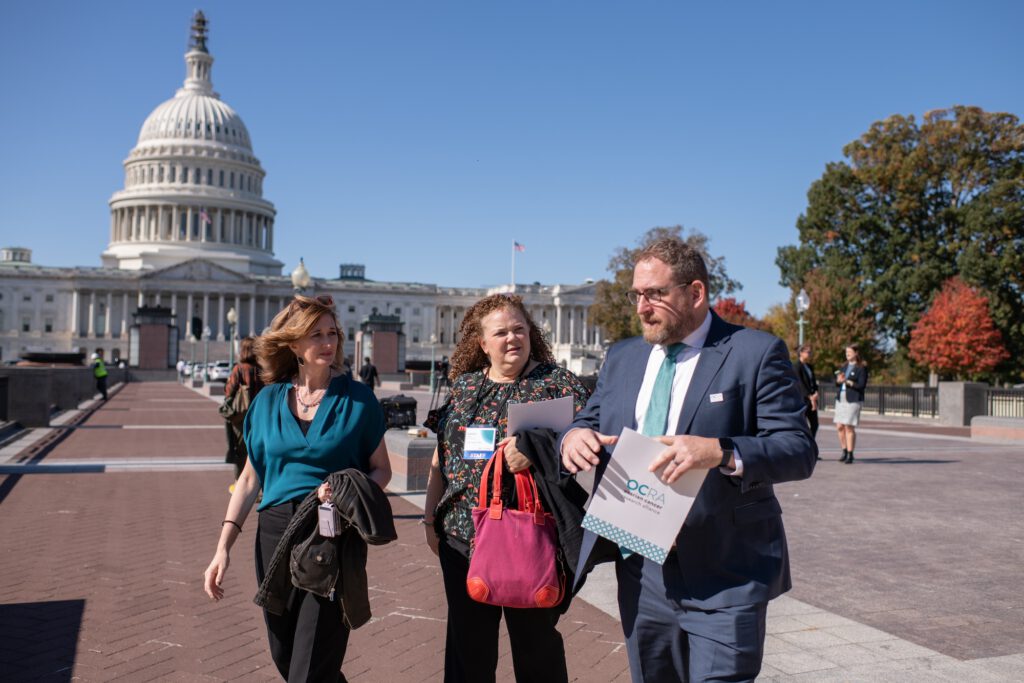
Chad Ramsey, OCRA’s Vice President of Policy, writes a monthly update with behind-the-scenes reports to keep you current on the latest news from our Advocate Leaders and policy team.

Now that I can, I’m traveling again and one of my goals this year is to advocate for ovarian cancer [research] because I finally have the chance.

From sending messages to your representatives to becoming an OCRA Advocate Leader and traveling to Capitol Hill, there are myriad ways to support the cause.
Sign up for our Action Alert mailing list so that you can stay up to date on our latest advocacy activities.

Written by Chad Ramsey, Vice President, Policy, Ovarian Cancer Research Alliance FY26 Budget Update: Critical Cancer Programs at Risk Congress is deep into its work on the fiscal year 2026 … Continued
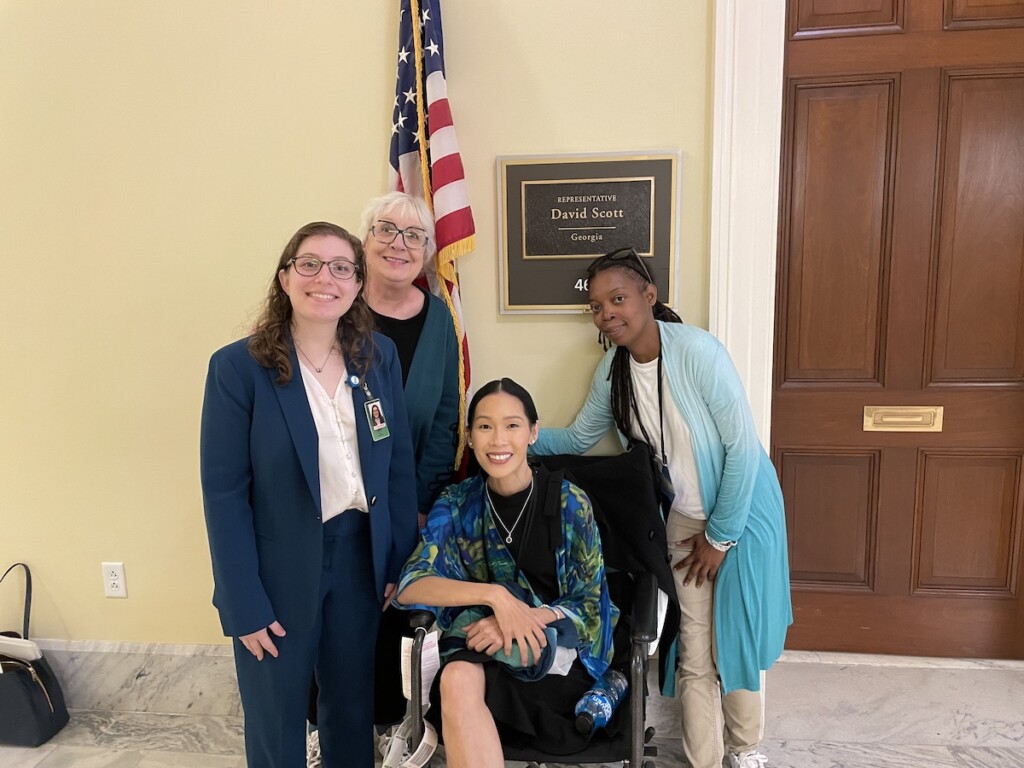
Ovarian Cancer Research Alliance is pleased to welcome our 2024 cohort of Advocate Leaders, the biggest ever for our organization with a total of 125 participants. This year’s group, which … Continued
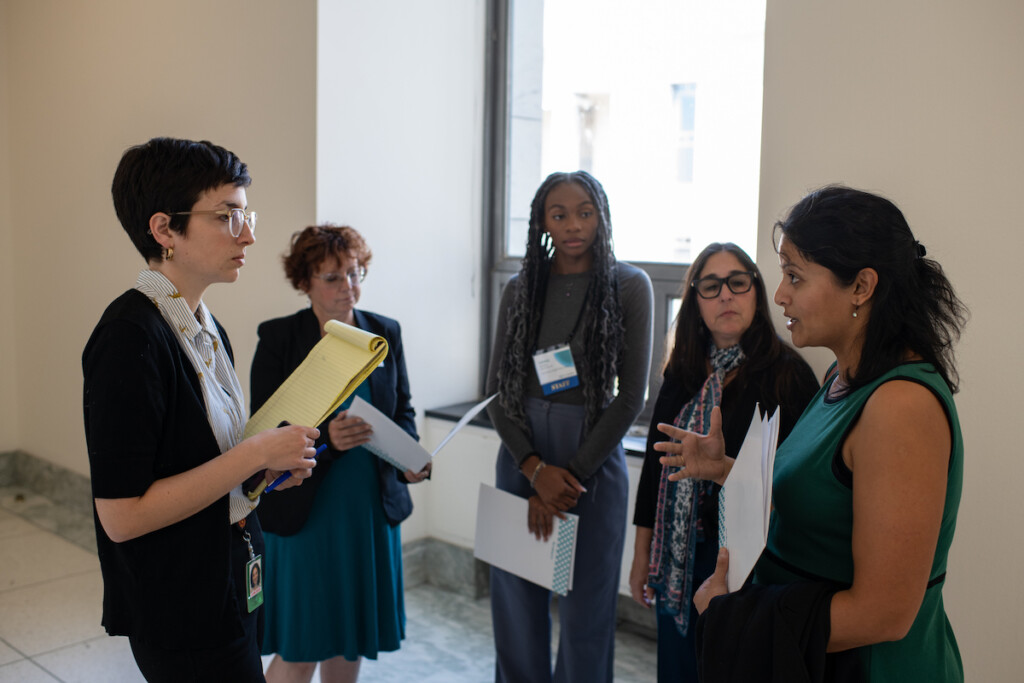
The voices of OCRA’s advocates were amplified by recent television coverage of this year’s Fall Advocacy Day, during which more than 70 people from 30 states met with over 120 Congressional offices … Continued
Get email updates about research news, action alerts, and ways to join the fight.